第3章
Bostil himself was half horse, and the half of him that was human he divided between love of his fleet racers and his daughter Lucy.He had seen years of hard riding on that wild Utah border where, in those days, a horse meant all the world to a man.A lucky strike of grassy upland and good water south of the Rio Colorado made him rich in all that he cared to own.The Indians, yet unspoiled by white men, were friendly.Bostil built a boat at the Indian crossing of the Colorado and the place became known as Bostil's Ford.From time to time his personality and his reputation and his need brought horse-hunters, riders, sheep-herders, and men of pioneer spirit, as well as wandering desert travelers, to the Ford, and the lonely, isolated hamlet slowly grew.North of the river it was more than two hundred miles to the nearest little settlement, with only a few lonely ranches on the road; to the west were several villages, equally distant, but cut off for two months at a time by the raging Colorado, flooded by melting snow up in the mountains.
Eastward from the Ford stretched a ghastly, broken, unknown desert of canyons.
Southward rolled the beautiful uplands, with valleys of sage and grass, and plateaus of pine and cedar, until this rich rolling gray and green range broke sharply on a purple horizon line of upflung rocky ramparts and walls and monuments, wild, dim, and mysterious.
Bostil's cattle and horses were numberless, and many as were his riders, he always could use more.But most riders did not abide long with Bostil, first because some of them were of a wandering breed, wild-horse hunters themselves;and secondly, Bostil had two great faults: he seldom paid a rider in money, and he never permitted one to own a fleet horse.He wanted to own all the fast horses himself.And in those days every rider, especially a wild-horse hunter, loved his steed as part of himself.If there was a difference between Bostil and any rider of the sage, it was that, as he had more horses, so he had more love.
Whenever Bostil could not get possession of a horse he coveted, either by purchase or trade, he invariably acquired a grievance toward the owner.This happened often, for riders were loath to part with their favorites.And he had made more than one enemy by his persistent nagging.It could not be said, however, that he sought to drive hard bargains.Bostil would pay any price asked for a horse.
Across the Colorado, in a high, red-walled canyon opening upon the river, lived a poor sheep-herder and horse-trader named Creech.This man owned a number of thoroughbreds, two of which he would not part with for all the gold in the uplands.These racers, Blue Roan and Peg, had been captured wild on the ranges by Ute Indians and broken to racing.They were still young and getting faster every year.Bostil wanted them because he coveted them and because he feared them.It would have been a terrible blow to him if any horse ever beat the gray.But Creech laughed at all offers and taunted Bostil with a boast that in another summer he would see a horse out in front of the King.